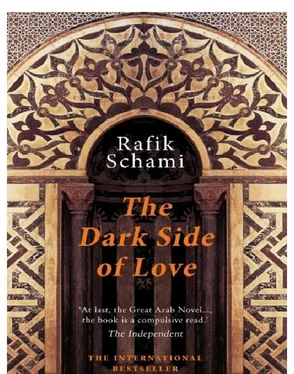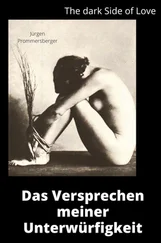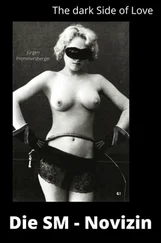George Mushtak had met Jusuf Shahin on the evening of his arrival in Mala. The two men were almost the same age. They drank together in the house of the village elder Mobate, who had invited all the notables of Mala to meet the stranger seeking shelter there. It was said that George and Jusuf made friends quickly that evening, but came to blows a few days later because Shahin had slighted Mushtak’s young wife Sarka and treated her roughly. He didn’t like women, in particular blue-eyed women with quick tongues who laughed a lot. Sarka combined all those qualities.
Mobate managed to reconcile the two men, and there was peace for a while. Then came the christening party for the village elder’s firstborn son. The christening wasn’t even over, so the tale went, before trouble flared up between the two rivals. Apparently Jusuf had made a coarse joke at Sarka’s expense; because of her blue eyes he was said to have asked whether her mother had conceived her with a Frank, his term for all Europeans. “Oh yes,” Sarka was reported as replying, “at the same time as your mother conceived you with a donkey.”
“Whore!” he spat at the young woman. Then there was a riot. Jusuf was about to slap Sarka’s face, when George Mushtak came between them. Several others tried to part the two men. Jusuf left the house. He had been the only Orthodox Christian at the party anyway.
George Mushtak was deeply offended and swore revenge. Perhaps the origin of all the hostility that followed lay in his disappointment. He had liked Shahin, and had great hopes of their friendship.
When the priest spoke to him, trying to smooth matters over, he merely spat. “If I ever forgive that dog I’ll lick my spittle off the ground.”
From then on he was always at pains to show who was the most powerful rooster on the Mala dunghill. Many tales were told of his wily tricks in buying everything he could lay hands on, until at last he owned a hectare of land, a house, a horse, a cow, a sheep, and a threshing floor more than his arch-enemy Shahin.
From the very first day Jusuf’s wife Samia had seen more in Mushtak than just the threat of a rival for power in the village, which was Jusuf’s view of him until that christening party. Then she met the stranger for the first time, and later she told her husband that in his company she felt he was a beast of prey. He had an acquisitive, bloodthirsty look in his eyes, she said. She felt as if her skin were scorching when Mushtak looked at her, and she found his presence uncomfortable.
Shahin’s pride was wounded by his initial misjudgement of his opponent. It was only Sarka whom he had despised from the first. So now he used her to strike his next blow at Mushtak. He claimed she was a Muslim woman, the stranger had brought her with him from a brothel, and that was why she never went to church. She didn’t even know how to cross herself. That taunt went home.
Mushtak wanted to provide evidence to the contrary next Sunday, but Sarka refused to set foot in the church. They quarrelled bitterly; it was said that he had been very abusive to her during their argument, and that was why she had done all the things she did later, which ultimately led to her early death.
But before that sad event hostility between the two rivals went on steadily growing, and the village split into two clearly divided camps, the supporters of Mushtak and the supporters of Shahin. Attack after attack fuelled rage and hatred on both sides.
For instance, a young man once went to work for Shahin as a groom. After a year he disappeared one night with five of his master’s most expensive Arab horses. When it came to Jusuf’s ears that George Mushtak had hired the runaway groom, Mushtak’s barn burned down two nights later with that year’s entire harvest inside it.
In addition, the growing enmity between the two rivals ultimately gave their adherents, Catholic on one side and Orthodox on the other, a clear focus for their mutual dislike, and it took up permanent residence in their minds. Soon the village elder, Mobate, seemed only a pathetic mediator always trying to keep the two real rulers of Mala apart. But there was no chance of that, for the hostility between Catholics and Orthodox Christians is over a thousand years old in the Middle East. Too much blood had flowed in Mala now, and both clans had an excellent memory. Every grief suffered by one side was celebrated as an occasion for joy by the other.
But one of the bitterest defeats ever suffered by George, as founder of the Mushtak clan, was the work not of a Shahin but of his own son Elias, Farid’s father. Or perhaps old Mushtak inflicted that defeat on himself, and his son was only the involuntary means to the end.
23. Elias Leaves
The Mushtak clan might be small in numbers, but to the peasants of Mala it seemed infinitely powerful. Its power came not only from its wealth but from its bold determination. Peasants hesitate. The Mushtaks made decisions swiftly and without fear of losses. They always acted with discretion, unlike their arch-enemies the Shahins, who were constantly letting the village know which government minister or high-ranking army officer was now friends with them. It was merely suspected that the Mushtaks had secret links with the men in power in Damascus.
They owned many houses in the capital, but however much those buildings were worth, what mattered to the people of Mala was that they owned the biggest farm in the village and the finest houses on the village square. The most handsome building of all, indisputably, was Elias’s summer residence. Farid’s father built it in 1950, three years after the death of George Mushtak, founder of the clan, as if to show the village that he had returned victorious. Fifteen years earlier his father had disowned him and disinherited him, for Elias had married not the village elder’s daughter Samira Mobate, in line with the patriarch’s plans, but Claire Surur from Damascus. However, that was only the official explanation of the war between them, and as in all wars there was another story behind their bitter struggle.
It was long assumed that the striking likeness between them had led to their mutual dislike. Elias was the image of his father, wiry, small, and dashing, like George. But in one thing he was very different.
George, the founder of the clan, had felt sick with envy when he first set eyes on his newborn youngest son. The midwife Sofia said that even at his birth Elias had an erect penis as long as her middle finger. And whenever she told the story, at this point in it she would always spread her large hand and show that impressive finger.
The founder of the clan had slept with half the women in the village, but all his life he fretted because his penis was so small. The women simply called it “Mushtak’s olive”, which tells us all we need to know about that insatiable skirt-chaser’s shame. So on the day of Elias’s birth he just looked at the boy with revulsion and left the room, cursing, without a single kind word to his wife.
The boy’s prick always horrified his father. At the time, most of the children in Mala used to run about naked or at the most very sparsely clad. Not so Elias. George Mushtak had ordered first Sarka, and after her death the housekeeper, never to let his son go out without trousers and a stout bandage worn under them.
Sarka didn’t particularly like Elias either. She felt sorry for him, but quite often she was afraid of him too, because whenever she suckled him that alarmingly erect penis would stick up from his frail little body, to macabre effect. It was hard as a rock and had a strangely penetrating tarry smell, even when she had bathed the baby three times with soap and massaged his penis with pure rosewater.
But obtrusive as Elias’s prick appeared, he himself grew to be a handsome, delicately built boy who showed a great gift for languages, even in first grade. Yet he never went to school without feeling apprehensive. In those days, children were beaten daily by their teachers, and indeed parents would encourage the schoolmasters with the proverbial saying: “His flesh and skin are yours, just leave us the bones.”
Читать дальше












